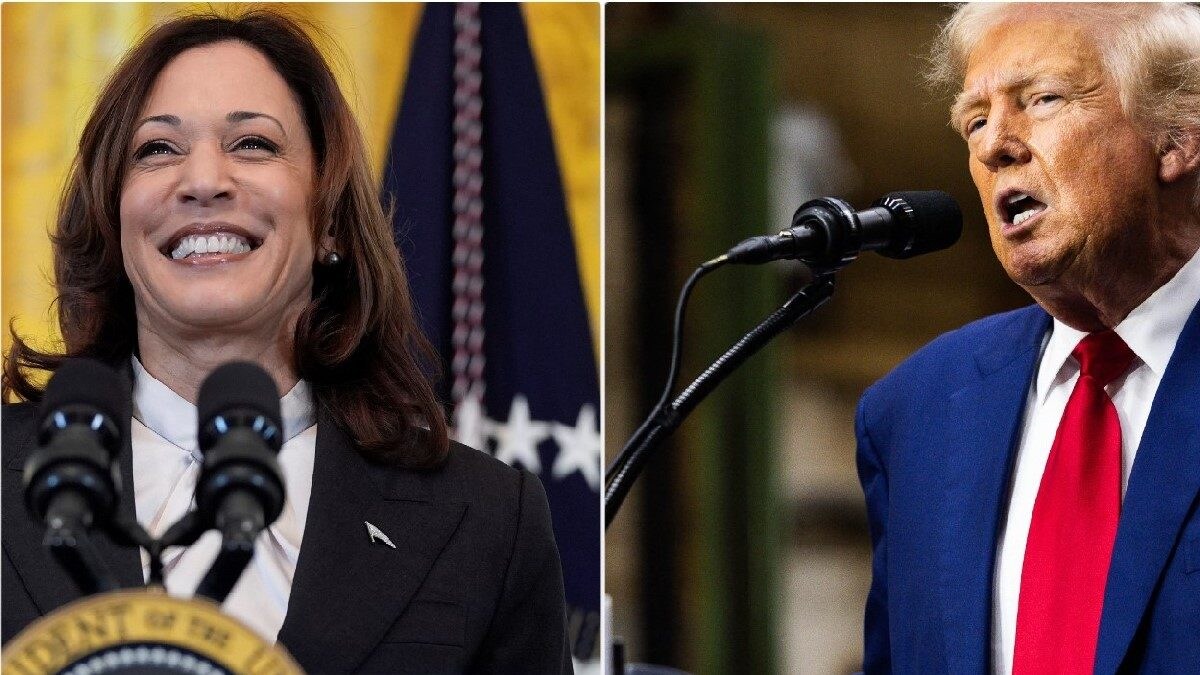Scottish government announces spending cuts worth £500m
The Scottish government will have to make cuts worth £500m, Shona Robison, the finance secretary has said.
As PA Media reports, outlining the levels of savings, Robison said £188m will be found across government, including by cutting active travel funding, £65m by re-purposing cash from other projects and around £60m through already announced spending controls.
Up to £460m from the ScotWind leasing round will also be used, Robison said, in the hopes it won’t all required to be spent.
Robison warned of further tough decisions, saying:
As we look ahead, it is clear that further significant action will be needed to reset the public finances onto a sustainable path.
The chancellor has made clear that UK government funding will continue to be tightly constrained. The prime minister has also made clear the difficult decisions to come.
Robison also said the current financial situation facing the Scottish government was “not sustainable”. She said:
If the Scottish government does not act, spending will continue to outstrip available funding.
This is not sustainable and tough decisions will be required.
Annual savings alone will not address this. All members of parliament must face up to this challenge in the demands they make during the budget process.
The Scottish government’s total budget for 2024-25 is about £60bn.
Key events Show key events only Please turn on JavaScript to use this feature
Robison: why Scottish government's spending cuts are needed
The Scottish government has set out its proposed cuts in a letter from Shona Robison, the finance secretary, to the Scottish parliament’s finance and public adminstration committee. It’s here.
This is what she says about why savings are needed.
In the 2023 medium-term financial strategy, I updated parliament on the challenges we face over the medium-term, the forecast gap between funding and spending, and our fiscal strategy for managing the public finances. This required tough and decisive action through the 2024-25 Scottish budget to improve the underlying sustainability of our public finances.
Since then, pressures on public finances have further grown, and I have had to take difficult decisions to remain on track to balance the Scottish government’s budget.
Pay continues to be a significant driver of in-year pressures, with potential costs of up to £0.8bn beyond our budget in this financial year alone. Whilst I welcome the UK government’s acceptance of the pay review body recommendations, as the Scottish Fiscal Commission note in their fiscal update published on 27 August, we face significant uncertainty over funding that we will receive from the UK government ahead of the UK Budget.
With a relatively larger public sector in Scotland, meeting the cost of pay deals above our budget assumptions place considerable strain on our finances. The UK government have announced that the upcoming budget will be “painful”, with the chancellor making clear that UK government funding will be tightly constrained, placing further uncertainty over the funding we will receive. I have made it clear that austerity is not the answer; that public services must be protected, and that investment is critical for growth.
Alongside pay, other costs have emerged that are more difficult to plan for but must be funded, such as in demand-led activities like legal aid, police and fire pensions and the costs of accommodation for Ukrainian displaced people. Like the rest of the UK, we also continue to face a significant health and social care backlog arising from the Covid-19 pandemic and a further surge in Covid and respiratory cases.
In her statement at Holyrood, Shona Robison, the Scottish government’s finance secretary, also urged MSPs from all parties to “work together” to address the budget problems the country was facing. She said:
We will continue to be a fiscally responsible government and balance the budget each year – as we have done every year for 17 years and we will do again this year,” she told MSPs.
But this will mean we must unfortunately take difficult decisions along the way.
I believe we can all agree on the importance of putting the public first in all that we do.
I am calling on members across the chamber to work together to navigate the challenges ahead, in the best interests of all the people that we have the privilege to serve.
Shona Robison suggests Scottish government won't raise income tax to remove need for budget cuts
In her statement to MSPs, Shona Robison, the Scottish government’s finance secretary, suggested she will not be using the powers she has under devolution to increase income tax to remove the need for cuts. She said:
On the application of taxation we can only go so far, given the scope of our devolved tax powers.
Raising significant further revenue would require substantial reform to the tax system or further devolution of powers.
These will take time and rely on the UK government. It is therefore essential that we aim to grow the economy and the tax base to support a sustained flow of revenues over time.
The Scottish government is due to announce its budget on 4 December. It has significant powers to vary income tax rates, and in Scotland there are now five different income tax rates, compared with three in the rest of the UK. The Scottish system is more progressive.
Scottish government announces spending cuts worth £500m
The Scottish government will have to make cuts worth £500m, Shona Robison, the finance secretary has said.
As PA Media reports, outlining the levels of savings, Robison said £188m will be found across government, including by cutting active travel funding, £65m by re-purposing cash from other projects and around £60m through already announced spending controls.
Up to £460m from the ScotWind leasing round will also be used, Robison said, in the hopes it won’t all required to be spent.
Robison warned of further tough decisions, saying:
As we look ahead, it is clear that further significant action will be needed to reset the public finances onto a sustainable path.
The chancellor has made clear that UK government funding will continue to be tightly constrained. The prime minister has also made clear the difficult decisions to come.
Robison also said the current financial situation facing the Scottish government was “not sustainable”. She said:
If the Scottish government does not act, spending will continue to outstrip available funding.
This is not sustainable and tough decisions will be required.
Annual savings alone will not address this. All members of parliament must face up to this challenge in the demands they make during the budget process.
The Scottish government’s total budget for 2024-25 is about £60bn.
Minister says EHC plan waiting time figures show special needs children 'left in limbo far too long'

Sally Weale
More than 5,000 children in England with special educational needs and disabilities (SEND) waited between one and two years for a local authority decision on their application for an education, health and care (EHC) plan to be completed, according to new figures released today.
A further 90 children had to wait for more than two years, despite there being a statutory requirement for local authorities to issue a plan within 20 weeks of a request or confirm a decision not to within 16 weeks.
The figures, published in a parliamentary written answer, reveal that 62% of decisions by local authorities on whether or not to issue an EHC plan took up to six months last year, 31% took between six months and a year, and 6% between one and two years.
An EHC plan is a legal document which sets out a child or young person’s special educational needs and the support they require. The figures were published ahead of three debates this week in the House of Commons on support for children with SEND.
The minister for school standards, Catherine McKinnell, said:
These figures show that children with special educational needs and disabilities and their families are often being left in limbo for far too long.
The system is creaking at the seams following years of neglect, and without action would only deteriorate further, given the growing number of families needing support.
We will work as quickly as possible to ensure there is more effective early identification and support to give every child the best start in life, including by providing new online training to early educators.
Pro-Palestinian MPs in Independent Alliance says it is 'beyond shameful' UK has taken so long to act on arms sales to Israel
At least five of the seven leftwing Labour MPs who had the whip withdrawn in July after rebelling in a vote on the two-child benefit cap have been commenting on social media about the decision to limit some arms sales to Israel. While they all want the government to go further, some have been making an effort to sound positive about the announcement.
This is from Zara Sultana, who is not giving the government much credit.
Yesterday it was confirmed an Israeli F-35 fighter jet – made in part in Britain – was instrumental in a recent attack on a “safe zone” in Gaza, killing 90 people.
Hours later the UK government refused to suspend licences pertaining to F-35s.
ALL arms sales to Israel must end.
Apsana Begum adopted a similar message in the Commons yesterday. And Imran Hussain was not over-enthusiastic in a post yesterday, although he said David Lammy had acted “rightly”.
The Foreign Secretary’s review of arms sales licenses to Israel concludes there’s a “clear risk” that the Israeli military may be using UK arms to commit violations of international law in Gaza, and he’s rightly suspended a number of licenses as a result.
But when violations include killing aid workers and attacking ambulances, bombing refugee camps, and destroying civilian infrastructure with the deaths of over 40,000 Palestinians, the UK needs to follow countries like Canada with a full suspension, not a partial one.
But John McDonnell, the former shadow chancellor, tried to sound more positive. He posted this message yesterday.
A significant step forward & congratulations to all who have campaigned for an end to arms sales to Israel. However this is a first step & we now need to to examine the detail of the remaining licenses to bring about a total end to arms sales to a country committing war crimes.
And Richard Burgon described the move as a “welcome first step”.
Boris Johnson and others opposing the suspension of some arms sales to Israel should be clear:
The UK public wants an end to arms sales to Israel.
Arms licenses must end if there’s a risk of violating international law.
More action is needed but this is a welcome first step.
Some or all of these MPs will be hoping to have the Labour whip restored in due course, and that probably explains why their tone is not as critical as the statement issued by the Independent Alliance, the group of five independent MPs who were mostly elected as pro-Palestinian campaigners. Jeremy Corbyn, the former Labour leader who is their most prominent member, has posted it on X.
In the statement the five MPs say it is “beyond shameful” that it has taken the UK so long to accept that Israel may be in breach of international law. This is primarily a criticism of the Conservatives, who refused to suspend arms sales when they were in office, but it is also an implicit attack on Labour, which delayed saying the Israelis might be using British arms in breach of international law until yesterday and is still avoiding taking sides on whether war crimes definitely are or are not being committed.
Legal challenge to UK's policy on arms sales to Israel continues despite partial ban announcement

Dan Sabbagh
A legal challenge to the Labour government’s arms to Israel policy is continuing despite David Lammy’s announcement of a partial suspension of weapons exports, though it is expected to refocus on the legality of continuing to allow the sale of components for F-35 fighters and the consistency of the government’s position.
Phillippa Kaufman KC, appearing for al-Haq, a Palestinian human rights group, and the Global Legal Action Network, said at the high court the organisations wanted to proceed with a judicial review during a procedural hearing . She said they wanted “to bottom out” why the UK says it cannot exclude some F-35 components in jets which are sold to and used by Israel in its bombing campaign against Hamas in Gaza.
The lawyer also said that the campaign groups wanted to challenge the failure by the UK to determine whether the intense bombing in Gaza, which has contributed to the deaths of 40,786 Palestinians, was in breach of international humanitarian law because of the high proportion of civilian casualties.
Lammy had told MPs yesterday, Kaufman said, that “in many cases, it has not been possible to reach a determinative conclusion on allegations regarding Israel’s conduct of hostilities”. But she told the court on Tuesday morning that that represented “precisely the approach we submit is wrong in law”.
Instead, in suspending arms sales, Lammy argued yesterday that Israel could reasonably do much more to ensure lifesaving food and medical supplies reach civilians in Gaza and that the UK government was “deeply concerned by credible claims of mistreatment of detainees”.
Government guidelines prohibit arms exports to countries where there is a “clear risk” that international humanitarian law will be breached and war crimes committed. Revised submissions on behalf of al-Haq and GLAN are due to be made by the end of the month with proceedings continuing into the autumn.
Jordan welcomes UK's decision to end some arms sales to Israel
Ayman Safadi, the Jordanian foreign minister, has welcomed the UK’s decision to stop some arms sales to Israel. He posted this on social media.
The Uk did right to suspend some arms exports licenses to Israel. We urge an expansion of this suspension and call on all countries to impose a complete arms embargo on Israel. Unless consequences are real, Netanyahu will not end his aggression on Gaza and the West Bank, and…
— Ayman Safadi (@AymanHsafadi) September 3, 2024The Uk did right to suspend some arms exports licenses to Israel. We urge an expansion of this suspension and call on all countries to impose a complete arms embargo on Israel. Unless consequences are real, Netanyahu will not end his aggression on Gaza and the West Bank, and will not stop violating international law and threatening the security of the whole region.
No 10 insists UK remains 'staunch ally' of Israel after Netanyahu brands arms sales decision as 'shameful'
At the Downing Street lobby briefing this morning the prime minister’s spokesperson refused to accept that the decision to suspend some arms sales to Israel was going to damage diplomatic relations with the country. Asked about Benjamin Netanyahu’s statement this morning, the spokesperson would not engage with the claim that what the UK was doing was “shameful”. But he defended the decision and said the UK remained a “staunch ally” of Israel. He said:
As the foreign secretary, we have not taken this decision lightly, but we do take our duty to apply export licensing law seriously.
We remain a staunch ally of Israel. That’s why we took action in April to shoot down Iranian missiles aimed at Israel, preventing significant loss of life.
Our ambition is to see an end to this devastating conflict, and we are working extensively with international partners on progress towards a ceasefire deal on both sides.
Reeves says DWP will change way pension credit administered to reduce chances of eligible people not claiming
The Department for Work and Pensions will change the way pension credit is administered to reduce the chances of eligible people not claiming it, Rachel Reeves, the chancellor, told MPs today.
In a statement to MPs in July, Reeves announced that winter fuel payments for pensioners, which are worth up to £300, will be means-tested this year and only paid to people receiving pension credit (a benefit for poor pensioners). In response to claims that many pensioners will not be able to afford to heat their homes as a result, the government has launched a campaign to encourage take-up of pension credit. Only around two-thirds of people who are eligble claim the benefit (worth on average £3,900 a year), and as a result around 880,000 pensioner households are thought to be missing out.
In response to a question about the risk of vulnerable pensioners losing out this winter, Reeves told MPs today that the government was working with charities and local councils to ensure that people who are entitled to claim pension credit do claim it.
She went on:
The DWP will also bring together the administration of pension credit and housing benefits, so that pensioner households currently receiving housing benefit also receive any pension credit that they are entitled to – something that the previous government deferred for years despite knowing that the poorest pensioners were missing out.

Tugendhat condemns government's decision to suspend some arms sales to Israel
In the Q&A with reporters at his Tory leadership campaign launch Tom Tugendhat, the former security minister, strongly condemned the government’s decision to suspend some arms sales to Israel. He said:
That is a remarkable decision and it will be a decision that has been heard not just in Washington and Tel Aviv but around the world because if we are not willing to stand by our allies when they are literally discovering the bodies of their murdered citizens, what is the point of an alliance?
Rachel Reeves, the chancellor, is taking questions in the Commons. Although in her first answer she said that she would not be answering detailed questions on tax policy, because those were matters for the budget, she did confirm that the budget would include a “tax road map” giving guarantees about tax policy for business, including a commitment not to raise corporation tax above 25%. This is something she promised to do before the election.
The Muslim Council of Britain, which says it is the largest umbrella body representing Muslims in Britain but which was accused by the last government of being too close to extremists, has issued a statement giving a qualified welcome to the decision to limit some arms sales to Israel. Zara Mohammed, the MCB’s secretary general, said:
The government’s recent decision to restrict arms sales to Israel is a small but important step to ensure adherence to international law. It comes at a time when the death toll in Gaza has surpassed 40,000, too many lives have been lost and injured due to Israeli bombardment.
The decision only affects UK sale of arms amounts to 1% of Israeli arms sales. Many will still be left worried about the vast armoury our government are still supplying to Israel’s killing machine. We therefore need for full clarity on arms sales to a state that openly flouts international law.
We are also troubled to see how politicians seeking leadership and far right commentators are weaponising this decision once more to foment further hatred against Muslims.
“Appeasing Muslims” and “giving into an Islamist lobby” are just some of the islamophobic tropes being used to vilify Muslim communities. To conflate democratically elected MPs campaigning on the widespread concerns of Gaza to Islamist and sectarian politics reminds us of the politics of hate and Islamophobia the former government is used to using to score political points at the expense of Muslim communities.
Government should aim to restore pride in Britain's history, says defence secretary John Healey
As Patrick Butler reports, pride in Britain’s history has fallen sharply over the past decade as the country has become less nationalistic and jingoistic and more reflective about its place in the modern world, according to a report from the Centre for Social Research.
Here is Patrick’s story.
And here is a chart from the report.

In an interview on the Today programme this morning John Healey, the defence secretary, was asked if he regretted the fact that pride in Britain’s history has fallen, and if it was part of the government’s job to restore that pride. Healey replied:
Yes, and yes. Yes, I regret it. Yes, I think it is part of our government responsibility to help people see the things that we should all be proud of. It’s very hard not to feel proud of this country when you’re sitting in the basement of the military headquarters at the Ministry of Defense. It’s very hard not to feel pride, as I did when on Saturday morning at five o’clock I boarded a returning nuclear submarine in the mouth of the Clyde to talk to those submariners returning from patrol, 24/7, 365 days a year, helping keep us all safe.

David Evans to stand down as Labour's general secretary at party conference
David Evans has announced that he is going to step down as Labour’s general secretary at the party conference. He took on the job, which involves leading the organisational side of the Labour operation, in May 2020 after Keir Starmer became leader and wanted to install an ally in the post, and Evans played a signifcant part in enabling the party to go from hefty defeat to landslide victory over the course of a single parliament.
In a statement he said:
It has been the privilege of my life to be general secretary for the Labour party. It has always been my plan to serve for one general election, and take the organisation from shattering defeat to being a party of government.
Now both have been achieved, it is the right time both for me and the party for a new general secretary to take over.
A new general secretary being in post from the end of this year’s conference will give them the necessary time to lead the next chapter of change, taking over at the same early stage of the political cycle that I did.


 1 month ago
1 month ago


















